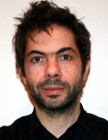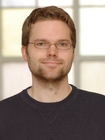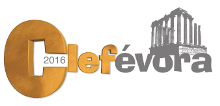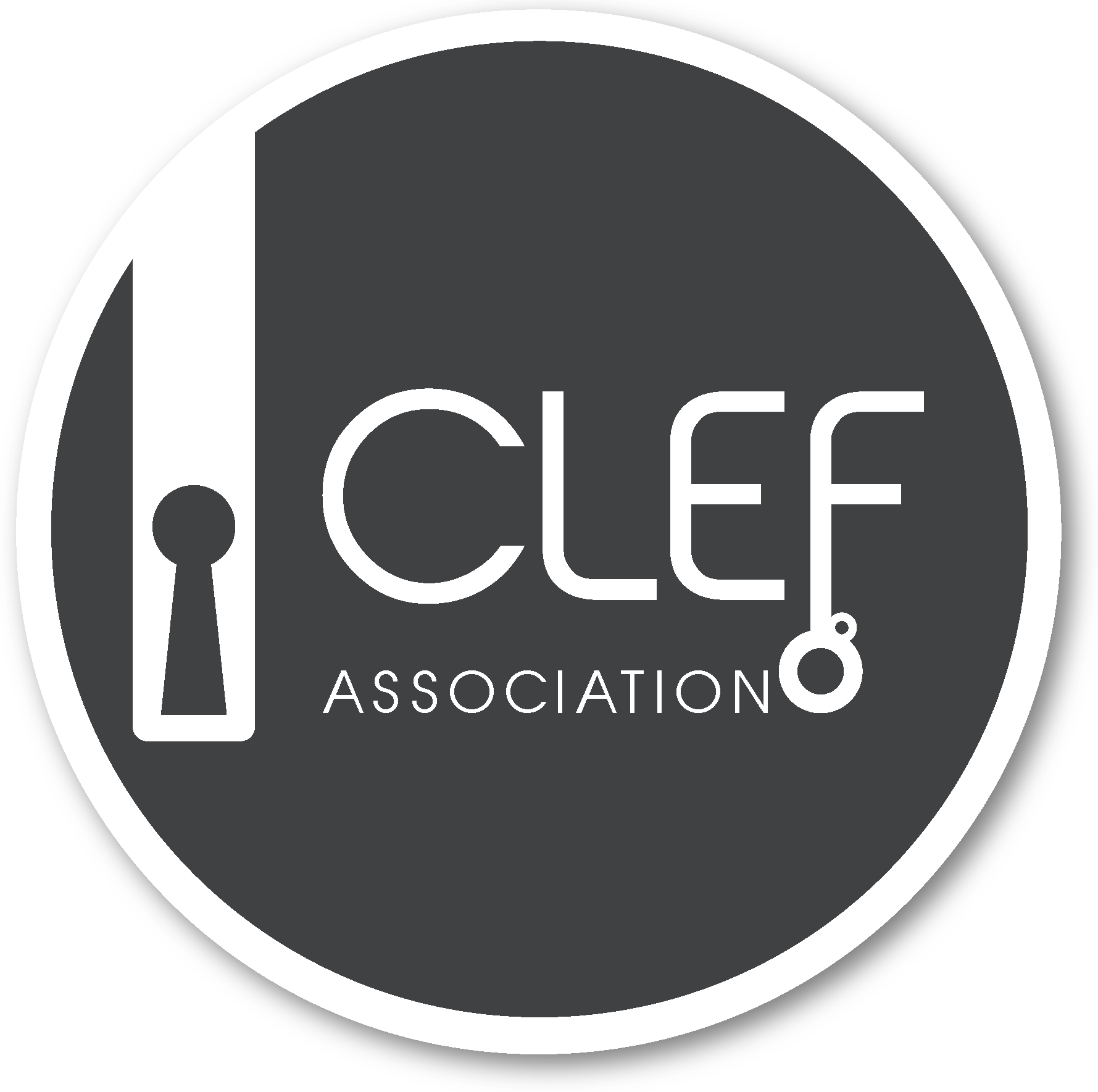| September 5 |
|
13:30-16:10
|
Lab Overviews 1 |
| 30 min. talk |
Overview of PAN'16 New Challenges for Authorship Analysis: Cross-genre Profiling, Clustering,
Diarization, and Obfuscation
Paolo Rosso, Francisco Rangel, Martin Potthast, Efstathios
Stamatatos, Michael Tschuggnall and Benno Stein |
| 18:30-19:30 |
Welcome Reception |
| September 6 |
|
Keynote + Author Obfuscation, Chair: Paolo Rosso |
| 13:30-14:30 |
Detecting Translingual Plagiarism: A Forensic Linguistic Contribution to Computational
Processing
Rui Sousa-Silva |
| 14:30-15:00 |
Author Obfuscation: Attacking the State of the Art in Authorship Verification
Martin
Potthast, Matthias Hagen, Benno Stein |
| 15:00-15:20 |
SU@PAN'2016: Author Obfuscation
Tsvetomila Mihaylova, Georgi Karadjov, Yasen Kiprov,
Georgi Georgiev, Ivan Koychev, and Preslav Nakov |
| 15:20-15:30 |
Discussion |
| 15:30-16:15 |
PAN Poster Session |
|
Authorship clustering using multi-headed recurrent neural networks
Douglas Bagnall
|
|
UniNE at CLEF 2016: Author Clustering
Mirco Kocher |
|
Methods for intrinsic plagiarism detection and author diarization
Mikhail Kuznetsov,
Anastasia Motrenko, Rita Kuznetsova, and Vadim Strijov |
|
Multi feature space combination for authorship clustering
Muharram Mansoorizadeh,
Mohammad Aminiyan, Taher Rahgooy, Mahdy Eskandari |
|
ExploringWord Embeddings and Character N-Grams for Author Clustering
Yunita Sari, Mark
Stevenson |
|
Author Diarization Using Cluster-Distance Approach
Abdul Sittar, Hafiz Rizwan Iqbal, and
Rao Muhammad Adeel Nawab |
|
A Big Increase in Known Unknowns: from Author Verification to Author Clustering
Anna
Vartapetiance and Lee Gillam |
|
Experiments in Authorship-Link Ranking and Complete Author Clustering
Valentin
Zmiycharov, Dimitar Alexandrov, Hristo Georgiev, Yasen Kiprov, Georgi Georgiev, Ivan Koychev,
and Preslav Nakov |
|
Author Masking through Translation
Yashwant Keswani, Harsh Trivedi, Parth Mehta, and
Prasenjit Majumder |
|
Evaluating Safety, Soundness and Sensibleness of Obfuscation Systems
Matthias Liebeck,
Pashutan Modaresi, and Stefan Conrad |
|
Author obfuscation using WordNet and language models
Muharram Mansoorizadeh, Taher
Rahgooy, Mohammad Aminiyan, Mahdy Eskandari |
|
SU@PAN'2016: Author Obfuscation
Tsvetomila Mihaylova, Georgi Karadjov, Yasen Kiprov,
Georgi Georgiev, Ivan Koychev, and Preslav Nakov |
|
Age and Gender Identification using Stacking for Classification
Madhulika Agrawal and
Teresa Gonçalves |
|
Cross-Genre Author Profile Prediction Using Stylometry-Based Approach
Shaina Ashraf,
Hafiz Rizwan Iqbal, Rao Muhammad Adeel Nawab |
|
Author Profiling Using Support Vector Machines
Rodwan Bakkar Deyab, José Duarte, and
Teresa Gonçalves |
|
Author Profiling using SVMs andWord Embedding Averages
Roy Bayot and Teresa Gonçalves
|
|
CAPS: A Cross-genre Author Profiling System
Ivan Bilan and Desislava Zhekova |
|
Author Profiling using Complementary Second Order Attributes and Stylometric Features
Konstantinos
Bougiatiotis and Anastasia Krithara |
|
GronUP: Groningen User Profiling
Mart Busger op Vollenbroek, Talvany Carlotto, Tim
Kreutz, Maria Medvedeva, Chris Pool, Johannes Bjerva, Hessel Haagsma, and Malvina Nissim
|
|
Using Machine Learning Algorithms for Author Profiling in Social Media
Daniel Dichiu,
Irina Rancea |
|
Statistical Semantics in Context Space: Amrita CEN@Author Profiling
Barathi Ganesh HB,
Anand Kumar M, and Soman KP |
|
Profile-based Approach for Age and Gender Identification
Ma. José Garciarena Ucelay, Ma.
Paula Villegas, Dario G. Funez, Leticia C. Cagnina, Marcelo L. Errecalde, Gabriela
Ramírez-de-la-Rosa, and Esaú Villatoro-Tello |
|
PANcakes Team: A Composite System of Genre-Agnostic Features For Author Profiling
Pepa
Gencheva, Martin Boyanov, Elena Deneva, Preslav Nakov, Yasen Kiprov1, Ivan Koychev1, and Georgi
Georgiev |
|
UniNE at CLEF 2016: Author Profiling
Mirco Kocher, Jaques Savoy |
|
Adapting Cross-Genre Author Profiling to Language and Corpus
Ilia Markov, Helena
Gómez-Adorno, Grigori Sidorov, and Alexander Gelbukh |
|
Exploring the Effects of Cross-Genre Machine Learning for Author Profiling in PAN 2016
Pashutan
Modaresi, Matthias Liebeck, and Stefan Conrad |
|
Profiling microblog authors using concreteness and sentiment
Oliver Pimas, Andi Rexha,
Mark Kröll, and Roman Kern |
|
Cross-genre Age and Gender Identification in Social Media
Anam Zahid, Aadarsh Sampath,
Anindya Dey, Golnoosh Farnadi |
|
Derivative Approach for Plagiarism Source Retrieval
Rhulani Maluleka |
| 19:45 |
Conference Dinner |
| September 7 |
|
Author Profiling, Chair: Francisco Rangel |
| 13:30-14:00 |
Overview of the 4th Author Profiling Task at PAN 2016: Cross-Genre Evaluations
Francisco
Rangel, Paolo Rosso, Ben Verhoeven, Walter Daelemans, Martin Potthast, Benno Stein |
| 14:00-14:20 |
GronUP: Groningen User Profiling
Mart Busger op Vollenbroek, Talvany Carlotto, Tim
Kreutz, Maria Medvedeva, Chris Pool, Johannes Bjerva, Hessel Haagsma, and Malvina Nissim
|
| 14:20-14:40 |
Exploring the Effects of Cross-Genre Machine Learning for Author Profiling in PAN 2016
Pashutan
Modaresi, Matthias Liebeck, Stefan Conrad |
| 14:40-15:00 |
CAPS: A Cross-Genre Author Profiling System
Ivan Bilan, Desislava Zhekova |
| 15:00-15:20 |
Author Profiling using Complementary Second Order Attributes and Stylometric Features
Konstantinos
Bougiatiotis and Anastasia Krithara |
| 15:20-15:30 |
Discussion |
| 15:30-16:15 |
Break |
|
Author Identification, Chair: Michael Tschuggnall |
| 16:15-17:00 |
Clustering by Authorship Within and Across Documents
Efstathios Stamatatos, Michael
Tschuggnall, Ben Verhoeven, Walter Daelemans, Günther Specht, Benno Stein, and Martin
Potthast |
| 17:00-17:20 |
Authorship Clustering using Multi-headed Recurrent Neural Networks
Douglas Bagnall
|
| 17:20-17:40 |
UniNE at CLEF 2016: Author Clustering
Mirco Kocher |
| 17:40-18:00 |
Methods for Intrinsic Plagiarism Detection and Author Diarization
Mikhail Kuznetsov,
Anastasia Motrenko, Rita Kuznetsova, Vadim Strijov |
| 18:00-18:15 |
Discussion |
| 19:45 |
"Petiscos" and "Cante Alentejano" |











